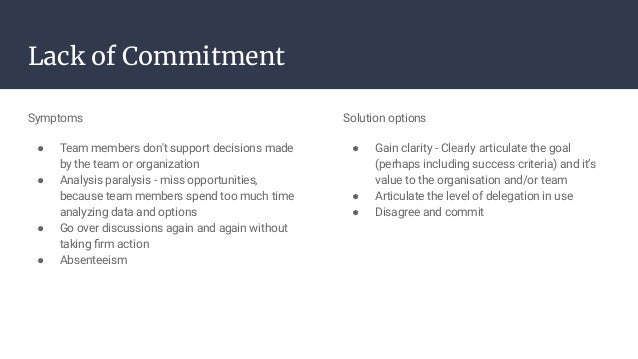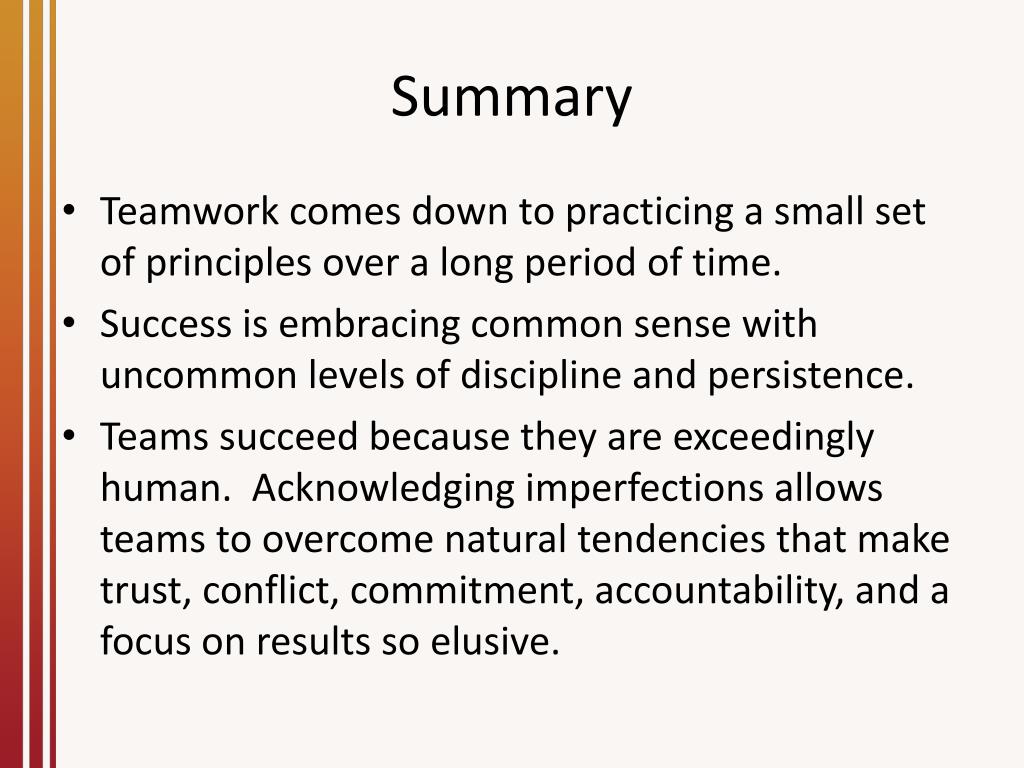


But Lencioni says with knowledge, courage and discipline, teams can just as quickly become not only cohesive, but high performing. Combine that with a manager who isn’t skilled in team building and guiding in this area, and wammo - dysfunctional team. Even the most well-intentioned people slip into unproductive and unhealthy behavior. Why are teams so dysfunctional? They are made up of individuals with varied interests, strengths and weaknesses. What we have found in our work is that every leader struggles with building a high functioning team. Which is why we recommend spending some time in this book. If you’ve answered “yes” to all five, you are at the top of the incredible manager list - great job! If you have answered “no” to any of these questions, you likely have some work to do.

Do your team members sacrifice their own interests for the good of the team?.Do your team members confront one another about their shortcomings?.Does your team come to decisions quickly and avoid getting bogged down by consensus?.Are your team meetings compelling and productive?.Do your team members openly and readily disclose their opinions?.So, lack of commitment is the 3rd of the 5 dysfunctions of a team.Lets first start with these five questions about your team: Often we assume that silence means people agree with us - but often it means people aren’t comfortable engaging in healthy conflict - and, as leadership author John Maxwell points out, if people don’t weigh in they won’t buy in”. One simple technique I’ve personally found useful for building commitment is assuming that “ silence means disagreement”. This is a classic symptom of a team where surface-level agreement has been obtained, without a full debate and a proper securing of commitment. So many times I hear teams saying “we need to start to present a unified front after our meetings” - instead of the corridor conversations afterwards where team decisions are criticised and reopened. It’s about buy-in and allowing everyone to explain their point of view during conflict. The CEO, Kathryn, explains that commitment isn’t about consensus. If a team doesn’t engage in constructive and ideological conflict and debate, it will fail to secure the full commitment of each member.


 0 kommentar(er)
0 kommentar(er)
